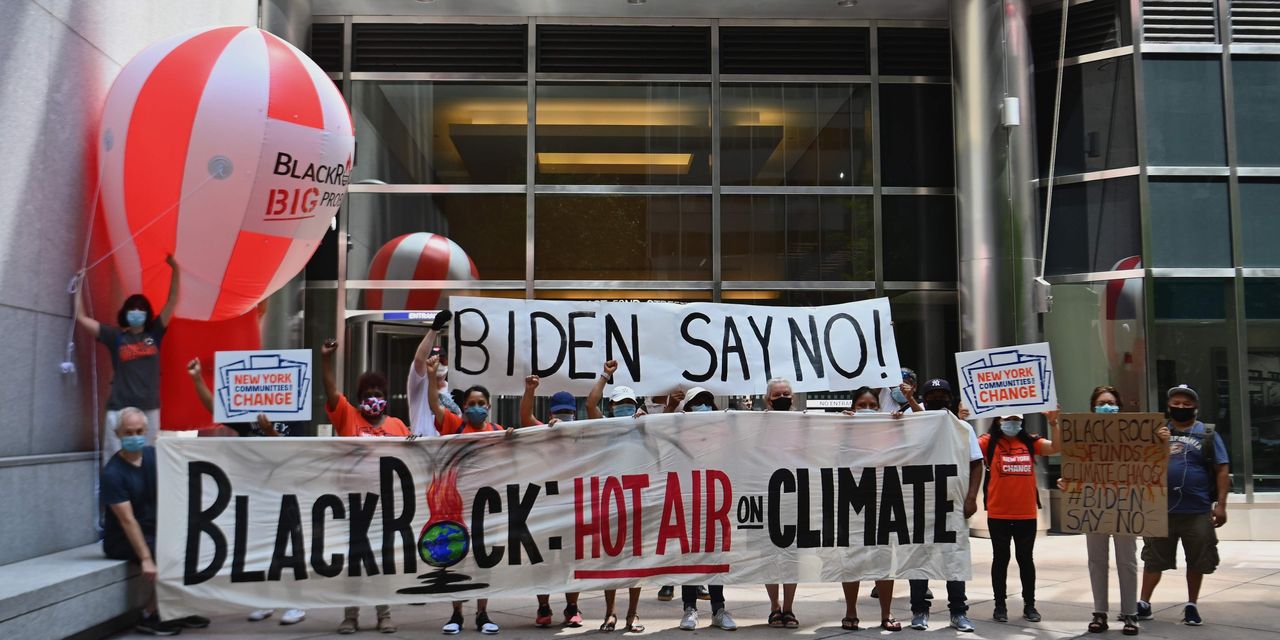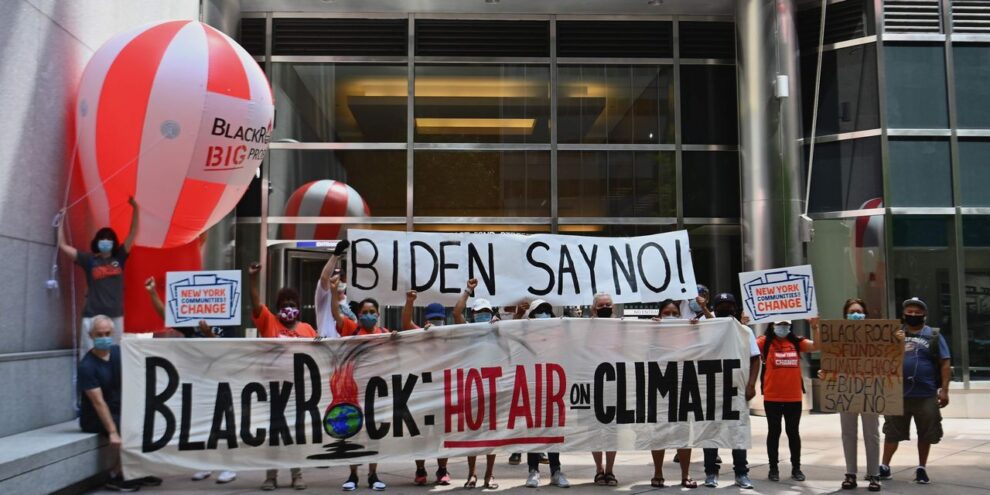
BlackRock Inc., the world’s largest asset manager with almost $10 trillion under watch, says its investors are demanding more of those holdings align with net-zero greenhouse gas emissions. And its clients want clear action toward a net-zero goal in place as soon as the end of this decade.
BlackRock said Thursday that by 2030, it anticipates at least 75% of its corporate and sovereign assets managed on behalf of clients will be invested in stock and bond issuers with science-based emissions targets. That would be up from 25% currently.
The U.S. and most powerful economies have aimed to halve their total emissions by 2030 and reach net-zero by no later than 2050.
Climate groups said because an expanded pledge comes from the world’s largest institutional investor, it could influence others and combine to make an instrumental reduction in global emissions, but only if reality matches the pledge.
“Because an orderly transition to net zero by 2050 would benefit the global economy and our clients in aggregate, we believe that by 2030, all issuers would benefit from developing and implementing robust transition plans,” BlackRock said in its release.
But BlackRock made clear again that an energy transition may have to include oil BRN00, +1.56% and gas.
“The Russian invasion of Ukraine is a stark reminder of the challenges of a just and orderly energy transition,” the company said. “These events may drive short-term increases in demand for fossil fuels and associated emissions in some regions, while potentially accelerating investments into renewable energy in Europe and other regions where energy security goals are aligned with decarbonization.”
Emissions, including carbon and the more-potent, but shorter-lasting methane, are driving the average global temperature higher, raising sea levels and intensifying droughts, floods and severe weather, costing lives and billions in economic loss.
A voluntary pledge set in Paris in 2015 and since reinforced aims to hold global warming to no more than 2 degrees Celsius. Ideally, the rise is no greater than 1.5 degrees. Recent U.N. climate panel reports have chided a too-slow response to reach that goal.
Why BlackRock matters
“‘The climate crisis is a financial risk that will continue to affect valuations.’”
As damages from climate-related weather disasters grew to $145 billion in the U.S. alone last year and as the International Energy Agency, the typically industry-friendly watchdog, warns of the need to cease development of fossil fuel assets, the investment and business community have come to discern that climate risk is financial risk. BlackRock’s CEO Larry Fink famously said as much two years ago in a letter that upended how financial markets viewed climate change.
“When the largest asset manager in the world ups its goal from 25% of such assets invested in science-based-target issuers to 75% of those assets, others should take note. The climate crisis is a financial risk that will continue to affect valuations,” said Mindy Lubber, CEO and president of sustainable-investing advocate Ceres.
About 90% of companies in the S&P 500 SPX, -0.77% publish voluntary reports disclosing carbon emissions to some degree as well as renewable-energy use. The Securities and Exchange Commission is taking steps toward formalizing the requirements around reporting climate risk and pushing for a uniform way to report this information.
What about oil and gas?
Other environmental groups said Thursday the impact of the BlackRock target depends on whether the asset manager implements guidelines to ensure that the heavy emitters in its portfolio, including oil CL00, +1.44% and gas companies, large shipping interests and others, are covered by its goal.
Testament to the asset manager’s influence, one such watchdog is explicitly named BlackRock’s Big Problem Campaign.
Casey Harrell, the group’s senior strategist, said “BlackRock issued an aspirational goal that it has confidence it can achieve. This goal is big enough that it could have the global impact needed. BlackRock must include specific targets and emission reduction goals for heavy-polluting sectors.”
“It must use every tool in its toolbelt to achieve these results, including engagement, voting, investment policy and fund capital allocation,” Harrell added.
BlackRock, for instance, still has some exposure to the global coal sector. Coal use, which has been replaced in many uses with natural gas NG00, +4.04%, remains the “dirtiest” emitter among fossil fuels.
Read: Larry Fink says globalization is over — Here’s what it means for markets
“BlackRock must act with urgency, especially with respect to the fossil fuel expansionists in [its] portfolio that are leading us to climate catastrophe,” said Lara Cuvelier, sustainable investment manager with advocacy Reclaim Finance. “After all, BlackRock today holds $34 billion in companies planning to expand their coal business, such as Glencore GLEN, -0.62%. ”
“‘[BlackRock] must use every tool in its toolbelt to achieve these results, including engagement, voting, investment policy and fund capital allocation.’”
BlackRock, along with Vanguard Group, Allianz Global Investors and Brookfield Asset Management and others, have formed the Net Zero Asset Managers Initiative, which pledged to reduce greenhouse-gas emissions by 2050.
Last November, think tank Universal Owner, said the firms in the initiative held portfolios that put them on track to cut their CO2 footprint by just 20% this decade. That’s below the 50% cut identified by scientists as critical to reaching a mid-century goal of full carbon neutrality.











Add Comment